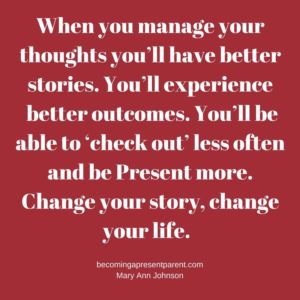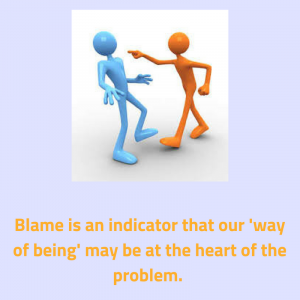 The Earth Can
The Earth Can
Teach Us
It’s summer and so you know you are in for some parables about gardens and flowers. : ) The earth, if we are paying attention, can teach us so much symbolically, and metaphorically. Here is a lesson I was reminded of this week in my garden.
When I was a girl, we had a set of very old books in our home. They were called The John Martin Big Books. They were published in 1934, three years after my mother was born. I loved these books of very old stories. Many, if not all, taught a lesson. One such story was about two girls. Each had a flower garden. One girl shared her flowers with her friends and neighbors. She picked them for those walking by who admired them. The other girl wouldn’t pick her flowers. After all, they were hers. She loved them and she was doing all the work.
Guess who had the most long-blooming garden. Yes, the girl who shared her flowers. Later in life, I learned why this is so. If flowers are allowed to go to seed, the plant stops blooming because it has accomplished its mission. If, however, the blooms are picked, and seeds cannot form, the plant will do all it can to bloom long enough to create the seeds it was meant to produce.
Learning to Deadhead
My mother taught me to deadhead flowers, sort of like that story in my John Martin Big Book. You didn’t need to pluck each blossom and give it away, but when a bloom was finished and began to droop, you clipped off the head so that it couldn’t produce seeds.
didn’t need to pluck each blossom and give it away, but when a bloom was finished and began to droop, you clipped off the head so that it couldn’t produce seeds.
My husband doesn’t garden but he loves gardens. We always go to the nursery together because he likes to help me pick out what is going to be planted. This year he wanted to buy a hanging basket of violas. I know how violas work and I knew that come mid-July they would stop looking beautiful and need to be replaced. But he liked them, so we bought them. I determined that from the time we bought them until they were spent, I would keep them deadheaded to help them last as long as possible.
I start on one side and I’m sure I get all the spent blooms. Then I move to the other side and every time I will see one I missed. Sometimes more than one. What happens? Why can’t I see them all from the side they are growing on? It’s because sometimes I need a different perspective. When I move to the opposite side, I can see the backside of the flowers which allows me to see blooms I couldn’t see from the front side.
The day I deadheaded my Columbines, a big flower, it was easy to see the seed pods. I wasn’t tired and had plenty of energy. The light was just right so I could see these large flowers and seed pods very well. I did a really good job on them. When I came back a couple of hours later and sat in one of the outdoor chairs, I’ll be darned if I didn’t find five seed heads that I had missed, even though I had done an excellent job the first time around.
Deadheading is a metaphor for life and family.
It’s never going to be perfect no matter how hard you try. When we can accept that, then we are free to enjoy the good job we are doing, despite the imperfections.
When we are trying to clean out our schedules, make something work in our family, improve a relationship, or work on anything that’s important it’s a lot like deadheading. You think you have cut out everything you need or can cut out. You think you have developed the perfect system to resolve a problem in your family. You are sure you have added or taken away something that will improve your relationships. You feel that you have explored all the options. Then you get a new perspective from a friend, a book, an article, a chance encounter with someone, and you see something that you have missed. You become able to jettison something in your schedule you didn’t think you could let go of, adjust a family system so it works better, or see something in the relationship that you can approach slightly differently to get a better outcome.
Good deadheading requires multiple perspectives as does running a successful life. I love deadheading because it is a quiet way of spending some alone time. So, I am focused. I’m not listening to a podcast or in any other way distracted. I move my fingers through the flowers, and I look very carefully for blooms that are spent. I’m experienced at this.
However, when I go to the other side or return to a flower bed later in the day, I know that despite my best efforts I will find spent blooms that I missed. It happens every single time. I can chalk it up as a failure to see, or that somehow, I am not paying enough attention, or I’m distracted, or that I just don’t care enough. I could allow myself to feel frustration at myself, the plant, the world, and how it works in general. I could beat myself up. I could stop enjoying this quiet, alone activity because it is never perfect. Never!
When I move to the other side of my hanging violas or walk around to the back side of my Columbines and see spent blooms or seed pods I missed I could ask myself, am I seeing these missed flowers or seeds because I finally stopped being a failure? Am I finally doing a decent job? Am I paying more attention? Am I less distracted? But I don’t allow myself to hold these feelings because all that happened was that I got a new perspective. I could see what I couldn’t see before.
As parents, when we miss something in a relationship or have a family system that we thought was perfect and it stops working, or our budget is a wreck, or we aren’t losing enough weight, or…the list goes on eternally, we can choose to berate ourselves or we can know that we are doing the best we can with what we have and go searching for what we may be missing.
Being a praying person, when I find myself at a loss as to why I am not better in some way, I begin by asking God for clarity, resources, strength, and grace. Just this week I reacted to my mom in a very unkind and childish way. I cried and told her I was sorry. Then I went to God and told him I was sorry. I asked what would cause me to respond in such a way. I sought clarity and thoughts came to my mind. I have continued to think and have received more thoughts. I am in the process of deadheading, giving away old stories and spent ways of being.
If I refrain from beating myself up for not doing something as well as I wanted to and instead seek information and resources to help me do better, then I will be given a new perspective. I will grow and in time, I will respond differently. I have lived this repeatedly and I know it’s true!
As I said, deadheading is a metaphor for life. We will fail. We will be unkind. We will miss things of importance. We will mess up in our family. It will happen. All that means is that you need a new perspective, information you do not now have. So, love yourself and your efforts. Speak kindly to yourself and extend grace as you learn and grow. Ask for help and then keep deadheading.



 I received a call from my sister, Rozanne. She was giving me an update on a difficult situation in her life. It was such a profound example of taking responsibility for your responses and choosing to let go of suffering, I asked her if I could share the experience with you.
I received a call from my sister, Rozanne. She was giving me an update on a difficult situation in her life. It was such a profound example of taking responsibility for your responses and choosing to let go of suffering, I asked her if I could share the experience with you.
 Last week’s article was vulnerable, and I got lots of emails from women who appreciated my candor. I am relieved. : )
Last week’s article was vulnerable, and I got lots of emails from women who appreciated my candor. I am relieved. : )

 I recently finished reading The Choice. The author, Dr. Edith Eva Eger, spent part of her teen years in Auschwitz. She shares things she learned while there, after she left, and while working as a psychiatrist with other trauma victims. It was gut-wrenching and not a pretty read. I had to endure a bit of foul language. It went with the territory.
I recently finished reading The Choice. The author, Dr. Edith Eva Eger, spent part of her teen years in Auschwitz. She shares things she learned while there, after she left, and while working as a psychiatrist with other trauma victims. It was gut-wrenching and not a pretty read. I had to endure a bit of foul language. It went with the territory. Mary, was six, she loved to watch the fish in our tank. We have a very sleek, silver catfish that swims fast and erratically whenever anyone stands in front of the tank. I believe the fish does this out of fear or because it has been disturbed.
Mary, was six, she loved to watch the fish in our tank. We have a very sleek, silver catfish that swims fast and erratically whenever anyone stands in front of the tank. I believe the fish does this out of fear or because it has been disturbed.


 Recently I was taken back in time as I listened to a soundtrack by John Denver. He was a singer-songwriter from the1960s through the 1990s. I was a young teen when he began his career and I enjoyed his music.
Recently I was taken back in time as I listened to a soundtrack by John Denver. He was a singer-songwriter from the1960s through the 1990s. I was a young teen when he began his career and I enjoyed his music.




 Have you ever noticed that when we’re having trouble with our spouse, neighbor or our children we begin to wonder what we can “do” to make the situation better? Can we devise a new system, have a good old-fashioned “talk it out” session or come up with a consequence/reward and so forth.
Have you ever noticed that when we’re having trouble with our spouse, neighbor or our children we begin to wonder what we can “do” to make the situation better? Can we devise a new system, have a good old-fashioned “talk it out” session or come up with a consequence/reward and so forth. This good, loving mother shared with me that her son is needy, sometimes whiny, and doesn’t respond when asked to do something. He doesn’t like being directed. It’s frankly annoying. The energy between them is not positive and she is short with him.
This good, loving mother shared with me that her son is needy, sometimes whiny, and doesn’t respond when asked to do something. He doesn’t like being directed. It’s frankly annoying. The energy between them is not positive and she is short with him. works PERFECTLY. When she gives him a heads up about a change in the schedule it works PERFECTLY. And as for random touches….well that is making ALL the difference. Not just for her seven-year-old, but for all of her children.
works PERFECTLY. When she gives him a heads up about a change in the schedule it works PERFECTLY. And as for random touches….well that is making ALL the difference. Not just for her seven-year-old, but for all of her children.